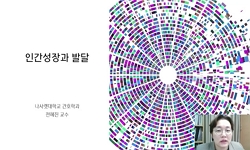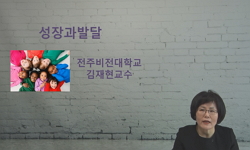In this article, I have considered Dewey’s meaning of habit and growth in relation to the issues of education for John Dewey’s character-forming. For Dewey, “character is the interpenetration of habits.” Therefore character should be understo...
http://chineseinput.net/에서 pinyin(병음)방식으로 중국어를 변환할 수 있습니다.
변환된 중국어를 복사하여 사용하시면 됩니다.
- 中文 을 입력하시려면 zhongwen을 입력하시고 space를누르시면됩니다.
- 北京 을 입력하시려면 beijing을 입력하시고 space를 누르시면 됩니다.
https://www.riss.kr/link?id=A76597119
- 저자
- 발행기관
- 학술지명
- 권호사항
-
발행연도
2009
-
작성언어
-
- 주제어
-
KDC
370
-
등재정보
KCI등재
-
자료형태
학술저널
- 발행기관 URL
-
수록면
1-17(17쪽)
- DOI식별코드
- 제공처
- 소장기관
-
0
상세조회 -
0
다운로드
부가정보
다국어 초록 (Multilingual Abstract)
For Dewey, “character is the interpenetration of habits.” Therefore character should be understood in terms of unification of habits. Regarding the character-forming, Dewey emphasizes the progressive interaction between humans and environment. He emphasizes both biological and social perspectives as one of the elements of the character-forming, and so habits are formed through the interactions of those sides. It becomes the result of continuous interaction between humans and environment.
Also, growth as ends of character-forming explains the best life for humans, and it has an important meaning of character-forming because it could be the criterion of evaluating human activity, experience and consummation. In addition, democracy could be an ideal to character-forming because it facilitates communication for formation of shared interest, which is essential condition for the growth, and extensive development of free and full interaction. That is, the criterion of democracy and character-forming is based on the shared interest between innumerable individuals and groups constituting society, and free, cooperative interaction. A requisite for accomplishing this ends is free and full communication.
In this article, I have considered Dewey’s meaning of habit and growth in relation to the issues of education for John Dewey’s character-forming.
For Dewey, “character is the interpenetration of habits.” Therefore character should be understood in terms of unification of habits. Regarding the character-forming, Dewey emphasizes the progressive interaction between humans and environment. He emphasizes both biological and social perspectives as one of the elements of the character-forming, and so habits are formed through the interactions of those sides. It becomes the result of continuous interaction between humans and environment.
Also, growth as ends of character-forming explains the best life for humans, and it has an important meaning of character-forming because it could be the criterion of evaluating human activity, experience and consummation. In addition, democracy could be an ideal to character-forming because it facilitates communication for formation of shared interest, which is essential condition for the growth, and extensive development of free and full interaction. That is, the criterion of democracy and character-forming is based on the shared interest between innumerable individuals and groups constituting society, and free, cooperative interaction. A requisite for accomplishing this ends is free and full communication.
동일학술지(권/호) 다른 논문
-
- 한국교육사상연구회
- 최관경(Choi, Kwan-kyung)
- 2009
- KCI등재
-
동양의 양육전통인 엄부자모(嚴父慈母)를 둘러싼 시선과 눈짓
- 한국교육사상학회 (구 한국교육사상연구회)
- 서명석(Seo Myoung-Seok)
- 2009
- KCI등재
-
- 한국교육사상학회 (구 한국교육사상연구회)
- 조상식(Cho Sang-Sik)
- 2009
- KCI등재
-
- 한국교육사상연구회
- 박응희(Park, Eung-Hee)
- 2009
- KCI등재





 KCI
KCI 스콜라
스콜라







